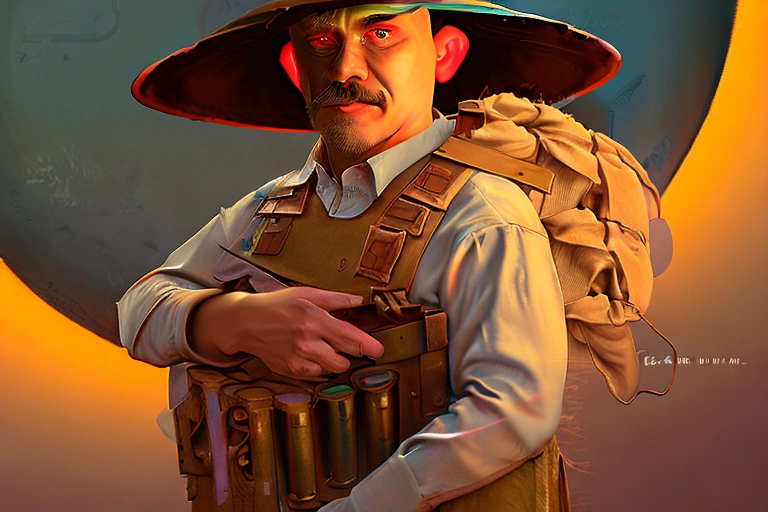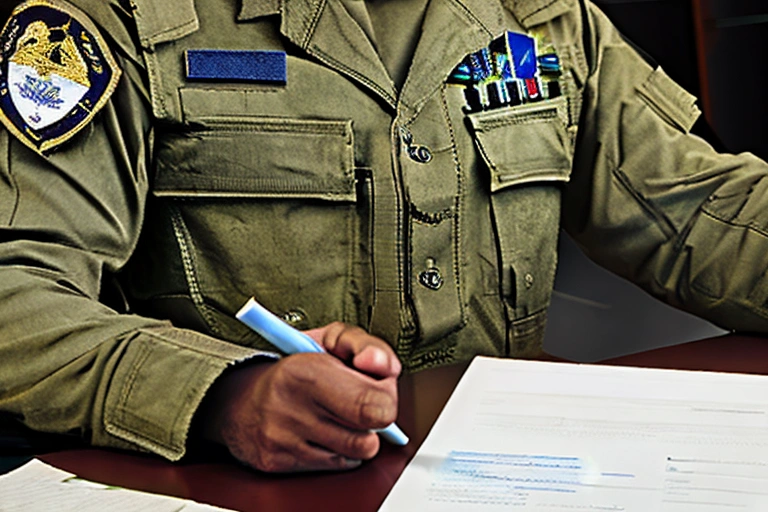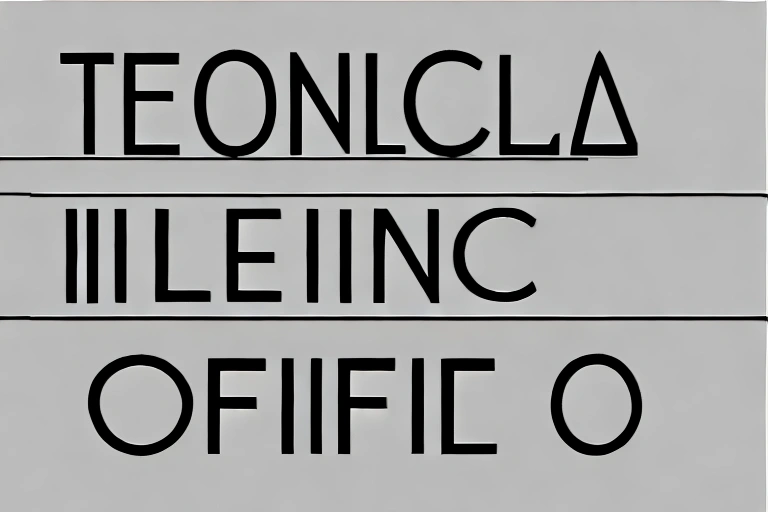Do you want to know what a Technical Intelligence Officer does and how they are essential to national security? Are you curious about the role they play in keeping the public safe? In this blog post, we will explore the responsibilities of a Technical Intelligence Officer and discuss how their work contributes to national security. Read on to find out more!
Introduction to Technical Intelligence
Technical intelligence (TI) is the collection, analysis, interpretation, and dissemination of information relating to the technology and capabilities of foreign nations and their military. TI is an essential tool for both military and civilian decisionmakers in assessing the strengths and weaknesses of potential adversaries.
Technical intelligence officers (TIOs) are responsible for collecting, analyzing, and disseminating TI information to a variety of audiences within the government and private sector. They work closely with other intelligence officers to provide policymakers with the best possible information on threats posed by foreign nations. TIOs also work with defense contractors to help them identify potential security vulnerabilities in their products.
TI is an important part of national security strategy, and TIOs are essential players in its implementation. They provide policymakers with accurate information on the capabilities of foreign nations so that they can make informed decisions about how to respond.
The Role of Technical Intelligence in National Security
The role of technical intelligence in national security is critical to the safety and security of the nation. Technical intelligence can provide policymakers with information about the enemy’s capabilities and intentions, as well as the vulnerabilities of key infrastructure. This information can help to protect the nation from potential threats.
Technical intelligence can also be used to identify potential security threats before they become reality. By understanding the enemy’s capabilities, policymakers can better plan for defensive measures. This information can also help to prevent attacks from happening in the first place.
Technical intelligence is essential to protecting national security. It can provide policymakers with critical information about the enemy’s capabilities and intentions, as well as the vulnerabilities of key infrastructure. This information can help to protect the nation from potential threats.
The Benefits of Technical Intelligence for Security Agencies
One of the most important roles in national security is that of Technical Intelligence Officer. A Technical Intelligence Officer collects, analyses and interprets information related to technology for their country or organization. They use this intelligence to help make informed decisions about how best to protect their nation or organization from potential threats.
The benefits of having a Technical Intelligence Officer on your team are numerous. A well-trained technician can provide you with critical information about potential threats before they become reality. This allows you to take measures to avoid or mitigate any potential damage caused by these threats. Additionally, a TechInt officer can help identify new and innovative technologies that could be beneficial for your organization. By doing so, you can stay ahead of the curve and maintain a strategic advantage over your competition.
The Challenges of Gathering Technical Intelligence
The challenges of gathering technical intelligence are numerous and varied. Technical analysts must be skilled at assessing a wide variety of data sources to produce accurate assessments. They must also be well-versed in complex technology systems, know how to exploit vulnerabilities, and have a deep understanding of networks.
Technical intelligence can provide valuable information that can help security agencies protect their citizens from online threats, cyberattacks, and other nefarious actions. By tracking down adversaries’ plans and intentions, technical intelligence can help ensure the safety of both people and nation resources.
Technologies Used in Technical Intelligence Gathering
Understanding the Role of a Technical Intelligence Officer
A technical intelligence officer (TIO) is a key player in the national security apparatus, responsible for providing timely and accurate information on emerging technologies and their potential implications for national security. A TIO’s job is to collect, analyze, and disseminate technical intelligence (TI) to policymakers and other decision-makers.
TI is a broad term that encompasses a variety of information sources, including signals intelligence (SIGINT), satellite imagery, computer network exploitation (CNE), and human intelligence (HUMINT). It can be used to track the development of weapons systems, assess the capabilities of foreign adversaries, and track the movement of terrorists and spies.
To effectively collect TI, a TIO must have access to a wide range of sources. He or she must be able to collect information from the public and private sectors, as well as from within governments themselves. In addition, a TIO needs to be skilled in interrogation and analysis techniques, so that he or she can extract the most relevant information from raw data.
TI is constantly evolving, which means that a TIO must keep up with changing technologies and tactics. He or she must also be aware of new methods for collecting TI, so that he or she can exploit new opportunities where they may exist.
A TIO’s job is challenging and demanding, but it is also vital to the success of national security efforts. If done correctly, TI can help policymakers make informed decisions about critical issues such as weapons development, foreign policy, and counterterrorism operations.
Assessing and Analyzing Technical Intelligence
To effectively gather technical intelligence, an organization must have a skilled technical intelligence officer. The officer’s job is to assess and analyze the latest technology in use by adversaries and other threats, providing valuable insights that can be used to enhance national security. Technical intelligence can come from a variety of sources, including secretly collected information or open-source data collected from public sources. Whether it’s collecting signals intelligence (SIGINT) on rival nations’ military activity or gathering economic espionage on foreign companies, the key is to find ways to glean as much relevant information as possible.
Developing Countermeasures and Strategies
The collection of technical intelligence is a complex and time-consuming process that requires the use of a variety of technologies. In order to ensure the security of our nation’s technology, it is important to have personnel who are skilled in the use of these technologies. The role of the technical intelligence officer is to collect and analyze information related to the development, use, and potential threats to our nation’s technology. This officer must be able to understand the technical aspects of different types of technology in order to identify potential threats. Additionally, this officer must be able to develop countermeasures and strategies to protect our nation’s technology.
Coordinating with Other National Security Agencies
There are many different technologies used in technical intelligence (TI) gathering. These range from human sources, to signals and communications technology, to remote sensing platforms. Collecting and analyzing TI data can be a difficult task, but it is essential for policymakers and security officials who want to understand the threats facing their country.
One of the most important aspects of coordinating TI efforts between different governmental agencies is communication. Agencies must work together to ensure that all information is shared properly so that no piece of information is missed. The proper use of technology also enhances communication by providing a secure way to share vital information with other entities without having to disclose sensitive sources or methods.
How to Become a Technical Intelligence Officer
The Technical Intelligence Officer’s Job Function
The Technical Intelligence Officer (TIO) is the key player in coordinating and providing analytic support to national security policymakers. TIOs provide objective, actionable intelligence about the capabilities and intentions of adversaries, terrorist organizations, and other threats to U.S. national security interests. The TIO also provides expert advice on how best to defend against these threats.
To be a successful TIO, you need strong analytical skills as well as knowledge of foreign languages, computer networks, and weapons systems. You must also be able to work independently and handle a high volume of information. The pay scales for TIOs are generally high compared with other federal law enforcement positions, but the long hours and intense demands may not be ideal for some people. In addition, the TIO position may be subjected to frequent changes in policy.
Impact of Technical Intelligence on National Security
The technical intelligence officer (TIO) is responsible for providing timely, accurate, and actionable intelligence on the capabilities and intentions of foreign adversaries. The TIO must have a strong understanding of technology in order to provide the best possible intelligence to decision-makers.
The TIO plays an important role in national security by providing timely and accurate information on the capabilities and intentions of foreign adversaries. By understanding technology, the TIO can provide policymakers with the best possible information to make informed decisions. Technical intelligence has a significant impact on national security, as it allows policymakers to make informed decisions about how to respond to threats.
Challenges Facing the TI Officer in National Security Operations
Technical intelligence officers (TIOs) play a critical role in national security operations by providing timely and accurate information to decision-makers. As the “eyes and ears” of the intelligence community, TIOs must have a strong understanding of the latest technology in order to identify potential threats and vulnerabilities.
While the challenges facing TIOs in national security operations are numerous, effective coordination with other national security agencies is essential to success. TIOs must be able to work effectively with their counterparts in the military, law enforcement, and intelligence communities to ensure that all relevant information is brought together and analyzed.
In order to be a successful TIO, it is important to have a strong background in technology and intelligence. Additionally, effective communication and collaboration skills are essential, as is a strong knowledge of the latest national security threats. However, with hard work and dedication, any individual can become a successful TIO in national security operations.
Enhancing the Role of the TI Officer in National Security Initiatives
As the title suggests, the role of a technical intelligence officer (TI) is to provide strategic and tactical intelligence related to technology and its use in national security. TI officers work with other national security agencies to provide a holistic view of threats and opportunities related to technology. In order to do this effectively, TI officers must have strong analytical and problem-solving skills. They must also be able to communicate effectively with a variety of stakeholders, including policymakers, analysts, and operators.
To become a successful TI officer, it is important to have a degree in engineering or a related field. However, it is not necessary to have prior experience in the technology field. The most important qualification for a TI officer is intelligence quotient (IQ). A high IQ is essential because it allows TI officers to quickly process information and come up with viable solutions. Additionally, a good working knowledge of English is necessary because many of the discussions that TI officers have with stakeholders take place in this language.
TI officers play an important role in national security initiatives. They are responsible for providing analysts with the information they need to make informed decisions about threats and opportunities related to technology. They also work with operators to ensure that technology is used effectively in national security operations. In addition, TI officers are responsible for providing policymakers with the best possible information about threats and opportunities related to technology. By doing this, they help ensure that the United States remains a leading player in the technology field.
Ethical Considerations for Technical Intelligence Officers
One of the most important roles of a technical intelligence officer is to ensure the security of sensitive information. This includes protecting against unauthorized access, theft, and espionage. In order to do this, technical intelligence officers must adhere to strict ethical guidelines.
First and foremost, technical intelligence officers must maintain the trust of their sources. They must never divulge information that could put these individuals at risk. Additionally, they must never use their position to gain an advantage over others. Finally, they must always act in the best interests of the United States and its citizens.
International Cooperation in Technical Intelligence Gathering
Technical intelligence officers from allied nations frequently work together to share information and ideas to improve national security. This type of cooperation is essential for accomplishing joint goals, such as thwarting a terrorist attack or stopping the spread of weapons of mass destruction. Moreover, collaborative endeavors can also help reduce tensions between countries, since each side can benefit from shared intelligence.
While cooperation between allies is beneficial, it is important that intelligence officers maintain ethical standards. Technical intelligence gathering may involve acquiring sensitive information about an enemy, which could be used in unethical ways if mishandled. For example, the release of confidential information could harm national security or put innocent people at risk. Therefore, technical intelligence officers must take care not to violate the privacy of citizens or reveal state secrets unnecessarily.
The Impact of Artificial Intelligence on Technical Intelligence
Gathering Technical Intelligence to Assess Threats
Artificial intelligence (AI) is quickly becoming an integral part of many aspects of national security. In particular, AI can be used to support and enhance technical intelligence gathering.
One key use for AI in technical intelligence gathering is to create “virtual analysts.” Virtual analysts are de-identified computer algorithms or models that can rapidly analyze large data sets. This capability has significant potential in supporting the analysis of complex threats. For example, rather than relying on human analysts who may have varying degrees of expertise in specific fields, a virtual analyst could be designed to systematically analyze all available information on a given subject.
The use of AI also has the potential to save time and resources by automating tasks that would otherwise require human input. For example, automated content analysis can identify and track key trends in a data set. In addition, AI-powered chatbots can be used to interact with target audiences in order to gather information or engage in psychological operations (PSYOPS).
While the benefits of using AI in technical intelligence gathering are clear, there is also risk associated with its use. For example, automated content analysis may unintentionally skew results in favor of the government or its sponsors. Furthermore, PSYOPS could have unintended consequences if not executed carefully. Nevertheless, overall the use of AI has the potential to greatly increase our ability to collect and analyze technical intelligence efficiently and effectively.
Exploiting and Analyzing Data for Strategic Insights
The impact of artificial intelligence (AI) on technical intelligence (TI) is still being debated. Some argue that AI will create a new era of TI, while others believe that AI will simply replace human analysts and researchers. In either case, the impact of AI on TI is likely to be significant.
AI can help analysts and researchers to more quickly and easily find and analyze data. AI can also help analysts and researchers to more quickly and easily find and exploit data. AI can also help analysts and researchers to more quickly and easily find and understand patterns in data. These are all important abilities for analysts and researchers who work in the field of TI.
AI can also help analysts and researchers to more quickly and easily find and understand the implications of data. AI can also help analysts and researchers to more quickly and easily find and understand the impact of data on the world around them. These are all important abilities for analysts and researchers who work in the field of TI.
Overall, AI is likely to have a significant impact on technical intelligence. While it is still being debated how big of an impact AI will have, it seems clear that AI will have a significant impact on how TI is conducted.
Preparing Intelligence Reports on National Security Concerns
As artificial intelligence (AI) continues to evolve, so too does the role of technical intelligence officers in national security. AI has already begun to impact traditional aspects of intelligence gathering, such as human source collection and analysis. As AI becomes more prevalent in society, it is likely that even more aspects of technical intelligence will be impacted.
One area where AI may have a significant impact is in the field of analysis. Earlier this year, an article was published called “How Deep Learning Is Revolutionizing Technical Analysis” written by Tim Brown, which detailed how a neural network can be used for technical analysis. This type of automated analysis can speed up the process of identifying trends and making informed investment decisions. Additionally, since many machine-learning models are automatically improving with experience, technical intelligence officers will need to be constantly updating their skills in order to stay ahead of the curve.
AI is also changing the way that intelligence reports are created. Currently, many technical intelligence officers rely on manual processes such as clipping and sorting data to create charts and graphs. However, with the increasing use of AI Chatbots, this process may soon be replaced by software that does the same job without requiring human interaction. This would eliminate a major bottleneck for processing information and would allow for more efficient reporting across all aspects of national security.
As AI continues to impact traditional aspects of Technical Intelligence gathering, preparation of effective intelligence reports will become even more important. Officers must have an understanding of both machine learning and artificial intelligence so that they can create reports that are both accurate and informative.
Leveraging Technology to Improve Security Decision-Making
Artificial intelligence (AI) is a rapidly-growing field of technology that can be used to improve the efficiency and effectiveness of technical intelligence (TI) gathering. AI can be used to automate tasks and processes, making it easier for analysts to collect and analyze data. AI can also help analysts identify patterns and trends in data, which can help them make better decisions about security threats.
AI has the potential to improve the quality and accuracy of TI data. For example, AI can help analysts identify fake or misleading information. AI can also help analysts identify sources of TI data that are unreliable or may be compromised. AI can also help analysts identify new sources of TI data that may be valuable for their investigations.
AI has the potential to improve the quality and accuracy of TI data.
AI can also help analysts make better decisions about security threats. AI can help analysts identify patterns and trends in data, which can help them make better decisions about which threats to investigate. AI can also help analysts identify new sources of TI data that may be valuable for their investigations. AI can also help analysts identify fake or misleading information. AI can also help analysts make better decisions about how to allocate resources to security threats.
Overall, AI has the potential to improve the quality and accuracy of TI data, help analysts make better decisions about security threats, and reduce the time and resources required to collect and analyze TI data.
Analyzing and Interpreting Data from Technical Intelligence Operations
Gathering and Analyzing Technical Intelligence
Technical intelligence (TI) is the collection, analysis, interpretation, and dissemination of information derived from technical means. It is a critical component of national security and homeland security. The role of the TI officer in national security is to provide timely and accurate information to decision-makers to help them make informed decisions about threats and vulnerabilities.
TI officers use a variety of methods to collect and analyze data. These methods can include open-source intelligence (OSINT), human intelligence (HUMINT), signals intelligence (SIGINT), geospatial intelligence (GEOINT), and cyber intelligence (CYBERINT). TI officers also use other sources of information, such as media reports, social media, and commercial data.
TI officers use a variety of tools to collect data, including collection platforms (such as websites and databases), analysis tools (including software programs and databases), and reporting platforms (such as classified networks and computer programs). Officers also use investigative methods, such as covert operations, to gather information that is not available through traditional means.
TI officers use a variety of methods to analyze data. These methods can include hands-on analysis, automated analysis, and dashboards. They also use various analytical models to explore the data. These models can include threat modeling, risk assessment, decision tree analysis, trend analysis, impact assessment, and scenario development.
The purpose of TI operations is to provide timely and accurate information about threats and vulnerabilities so that decision-makers can make informed decisions about security and defense. Officers use a variety of methods to collect and analyze data, so they can provide the most accurate information possible. They also use various analytical models to explore the data and help decision-makers make informed decisions.
Leveraging Technical Intelligence to Support National Security
A key role of the technical intelligence officer (TIO) is to provide timely, accurate information on behalf of the government, through both collection and analysis of data. This enables policymakers to make informed decisions related to national security. Additionally, TIOs may also be tasked with providing support to other branches of the military or law enforcement by sharing classified intelligence.
Within this context, it is important for TIOs to have a good understanding of technology in order to understand how it can be used for malicious purposes as well as for legitimate ones. In addition, TIOs must be able to interpret data collected from technical intelligence operations so that analysts can create actionable reports that help improve national security.
Developing Strategies for Utilizing Technical Intelligence
The technical intelligence officer plays an important role in the security of a nation by providing analysts and policymakers with timely, relevant information on foreign threats. In order to fulfill this role effectively, technical intelligence officers must have strong data analysis and interpretation skills. They also need to be able to develop effective strategies for utilizing their intelligence assets.
Data analysis involves breaking down complex information into manageable chunks so that it can be understood by those without specialist knowledge. Technical intelligence officers must be able to do this quickly and efficiently in order to provide policymakers with the information they need to make sound decisions. They should also be able to identify trends and patterns in data that might otherwise go unnoticed.
Once data has been analyzed, it is then necessary to interpret it correctly. Technical intelligence officers must be able to understand the meaning behind technical data items, whether they are signals intelligence (SIGINT) intercepts, satellite imagery or other forms of information. They should also be able to decipher the intentions of foreign governments and militaries based on this data.
Finally, policymakers need to be able to use information effectively in order to protect their nations. This often involves translating complex technical concepts into clear language that can be easily understood by those working within the security sector. Technical intelligence officers must have a deep understanding of both the data they contain and the political landscape in which they operate in order to provide optimal support for national security operations.
How Technology is Changing the Face of National Security
The role of technology in national security has evolved significantly over the past few years. As more and more aspects of national life are conducted through electronic means, the need for proficient technical intelligence officers (TIO) has become increasingly apparent.
More specifically, TIOs are responsible for collecting, analyzing, and disseminating information pertaining to technological developments that could impact national security. They work with a variety of departments – including intelligence agencies, military branches, and law enforcement groups – to fill gaps in knowledge or provide insights that can help policymakers take proactive measures to protect the country.
A good example of how TIOs have benefited America’s national security is during the 1990s. At that time, satellite imaging was relatively new technology and had the potential to yield valuable intelligence about threats like weapons production facilities or troop movements overseas. Thanks to skilled analysts like those working at the CIA’s Technical Services Division (TSD), however, satellite imagery was used sparingly but effectively to track down suspected terrorists before they could carry out attacks.
Today’s TIOs face an even greater volume of data than ever before; in fact, it is estimated that by 2020 there will be an additional 20 trillion bytes of information created every day! Accordingly, Tio skills must encompass not only traditional spycraft such as infiltration and data exfiltration but also complex analytical methods such as machine learning and big data analysis. In short, they need to be experts not only in their specific field but also across many different areas of research and development so as not to miss any potential clues related to national security threats.
The Future of Technical Intelligence in National Security
In the age of technology, the role of technical intelligence officer (TIO) has become increasingly important in national security. The TIO is responsible for gathering and analyzing information related to the development, use, and proliferation of technology. They work with other agencies, such as the National Security Agency (NSA), to keep America safe.
The TIO is essential to the NSA’s mission. They help the agency track down terrorists and other threats. They also help the NSA protect America’s secrets. The TIO is responsible for collecting and analyzing information related to the development, use, and proliferation of technology. They work with other agencies, such as the NSA, to keep America safe.
The TIO is a vital part of national security. They help keep America safe by tracking down terrorists and other threats. They also help protect America’s secrets by collecting and analyzing information related to the development, use, and proliferation of technology.
In conclusion, it is clear that technical intelligence plays an essential role in keeping national security up-to-date and continually improving. Technical intelligence officers are the lifeblood of these operations, working diligently to identify potential threats and equip agencies with the resources needed to keep citizens safe. The challenges involved in gathering technical intelligence can be great but with modern technologies such as artificial intelligence and big data analytics they have become less daunting while still preserving their importance. As technology evolves, so too must our understanding of how we use it to ensure maximum safety for all citizens.
As you continue on your own journey towards becoming a technical intelligence officer or leveraging new technology for national security purposes, don’t forget to check out our other articles here at [Name of Business] which provide advice and insight into maximizing the effectiveness of your efforts!









